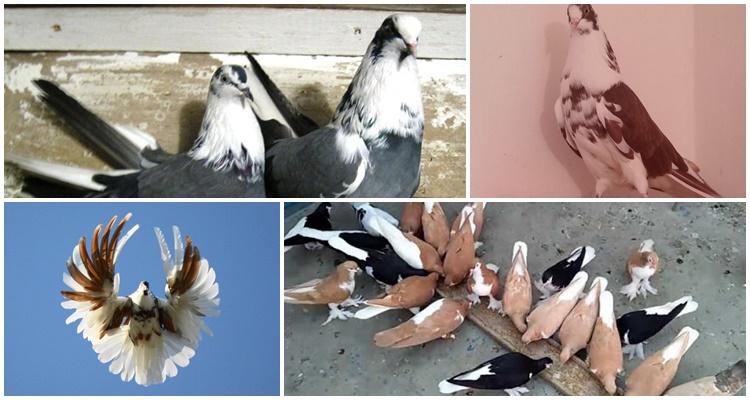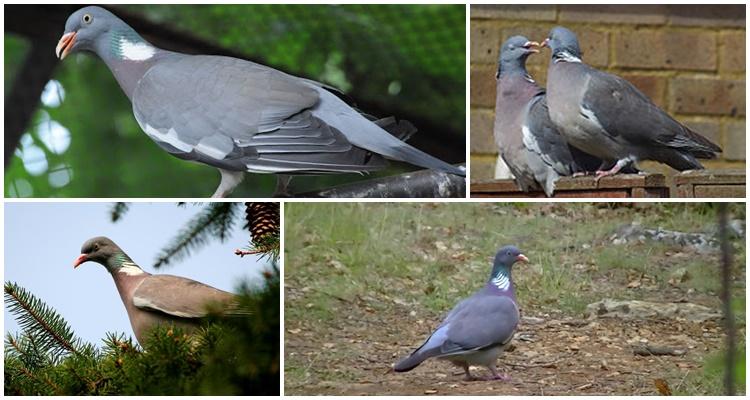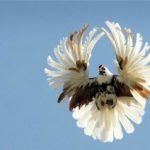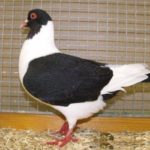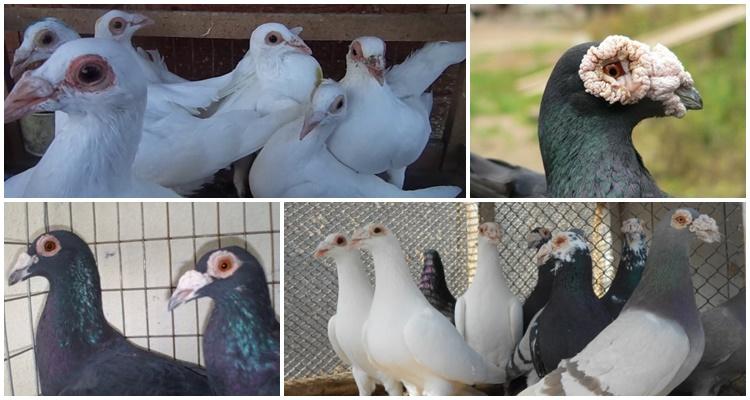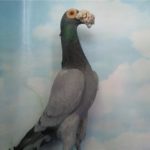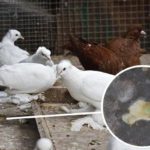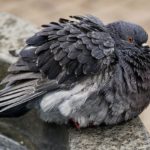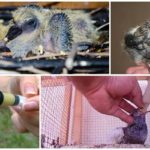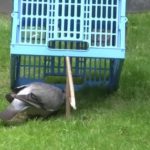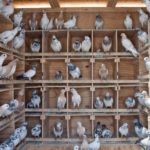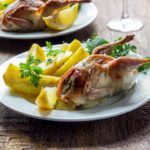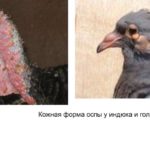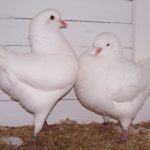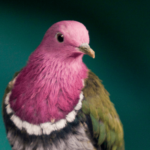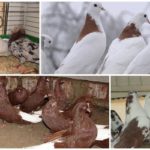Birds are surrounded by harmful viruses, bacteria, and parasites at every step. Accidents cannot be ruled out. All this weakens the pigeons. They lose their beautiful posture, the shine of their feathers; cannot quickly fly up from the hands of the owner. Modern veterinary medicine has thousands of drugs for almost all cases of life. Not all medications are suitable for pigeons. The dosage calculation is also different.
Features of taking medications
The body of pigeons differs from the body of other birds in its accelerated metabolism and short intestines.Therefore, substances entering the digestive system are absorbed faster and more completely. Errors in dosage of medications are more dangerous for pigeons. In cases where the instructions for use of the drug do not indicate the norms and schemes for this bird, it is advisable to consult a veterinarian. In addition, independent selection of medications without confidence in the diagnosis is fraught with complications.
The most accurate calculation of consumption rates is carried out taking into account the body weight of the bird. Then it is most convenient to multiply the average weight of one pigeon by the number of birds in the group and give the medicine along with food or water.
Sick animals who refuse to eat are given the medicine by force, pushing it down the throat with food or injecting it with a syringe.
Classification of veterinary preparations for pigeons
To make it easier to find the right remedy, medications are divided into groups.
| Type of drug | Purpose |
| Biological product | Prevention of diseases, destruction of fungi. |
| Antiparasitic | Against fleas, ticks, worms. |
| Antibacterial | Affects a specific bacterium. |
| Chemotherapy | Destroys microbes and parasites in tissues. |
| Vitamins | To maintain health. |
Recommended medications for treatment
The veterinary drug market offers dozens of products for the treatment of every disease in pigeons. There are products that have been well tested by veterinarians in everyday practice and have received positive feedback from poultry farmers.
Viral diseases
In order to prevent such diseases, the dovecote is kept clean. At the slightest suspicion of infection, the room is disinfected.
| Name of the disease | Symptoms | Medicines and measures |
| Newcastle disease | Apathy, sitting hunched over, seizures, paralysis of the limbs, neck, tail. | As a preventive measure, vaccine B or “La Sota” is administered into the nose of pigeons or all of them (if a sick individual is identified) for 30 days. After 6 weeks the course is repeated. The sick pigeon is eliminated.
|
| Smallpox | Large growths on open areas of the body (near the beak and eyes, on the paws) and mucous membranes. | Prophylactically, 0.03-0.06 ml of Albuvir per 1 kg of body weight orally every spring. For treatment – 5 days, 0.09 ml per 1 kg of weight orally. Isolate patients. |
Bacterial diseases
In such cases, antibiotics help pigeons. They either kill harmful microorganisms or stop their reproduction. The pigeon's immunity completes the fight.
| Name of the disease | Symptoms | Medicines and measures |
| Salmonellosis | Drowsiness, inactivity, contamination of feathers around the cloaca with diarrhea, difficulty breathing, limb cramps. Pigeons often get sick in the first 2 weeks of life. The entire livestock may die. | 10 mg of Enteroseptol with food for 5 days. |
| Enteritis | Diarrhea, thirst, feathers around the anus stained with droppings. | 5-10 ml of 5% Enroflon in 1 liter of water for 3-5 days. |
Vitamin deficiency
Deficiency of any of the 25 required for pigeon health vitamins leads to negative consequences. Deficiencies of A, D, E in pigeons are more often observed together, and are acutely expressed in February. It can be eliminated by:
- 1 ml of Aquitin in 20 ml of water for a week;
- 7-10 mcg of “Calciferol” per individual for 5-10 days;
- 40-150 mcg of vitamin E preparation per individual.
Vitamin deficiencies are especially dangerous for young growing pigeons. The deficiency of other vitamins is compensated by the consumption of birds:
- 1-2 mg of thiamine per head;
- 0.1 mg of vikasol per 100 g of feed for a week;
- 5-10 mg of ascorbic acid per individual;
- 0.3-0.5 mg of pyridoxine hydrochloride per 100 g of feed;
- 10 micrograms per head of folic acid;
- 30 mcg of cyanocabalamin per individual;
- 8-15 mg of nicotinic acid per day;
- 10 mg per 1 kg of feed biotin per day.
Parasite infestations
Parasites rob the pigeon's body directly, by eating nutrients in the intestines, or indirectly, by feeding on blood, feathers, and skin. Thus, they weaken the bird and are a source of infection by viruses and bacteria. Intoxication with helminth feces also causes significant damage to the health of the pigeon. Parasites affect the entire population at once.
Against roundworms, pigeon breeders administer 5 ml of a 10% solution of piperazine sulfate or 5% piperazine adipate through a probe to each individual.
"Ivermikol" against fleas, feather eaters and ticks is used externally once. 1 drop of the drug per 250 g of body weight is rubbed into dry, undamaged skin between the pigeon’s shoulder blades. "Albendazole" affects various groups of helminths. It is given to pigeons with fatty foods and does not dissolve in water. Dosage: 0.1 g of medicine per 1 kg of bird weight.
Other diseases
The pigeon may be injured. In such cases, the wound is treated with Dioxidin, soaking cotton wool in it and bandaging it to the damaged area. After 15 minutes, spray Aluminumspray onto the wound.
Pigeons can be poisoned by herbicides and fertilizers. Birds kept in enclosures can eat rodent poison, food contaminated with pathogenic fungi, or green potatoes cooked by the owner.Carbon monoxide due to improperly organized heating and careless handling of disinfectants on roosts can also become sources of poisoning. An overdose of antibiotics and sulfonamides is dangerous to the health of pigeons.
In any case, treatment can be successful if the cause of intoxication is known. If poison gets into the pigeon’s digestive tract, immediately wash the crop with a large amount of water administered using a probe. The liquid is squeezed out, massaging the goiter, and a new portion is introduced. After washing the digestive tract, the pigeon is given a decoction of flaxseed or a 5% aqueous solution of potassium permanganate. Then visit a veterinarian as soon as possible.
Disease Prevention
The best way to prevent the spread of infections is to keep your pigeons clean.
For this:
- litter is removed at least once a week;
- vacuum the room;
- disinfect the dovecote before the chicks hatch;
- change the water every day and add potassium permanganate to it.
Birds showing signs of disease are immediately isolated. Twice a year, pigeons take preventive medications against helminths or have their droppings submitted for analysis every six months. Chicks are vaccinated against Newcastle disease and smallpox. Vaccination is repeated after a month and a half and a year, respectively.

